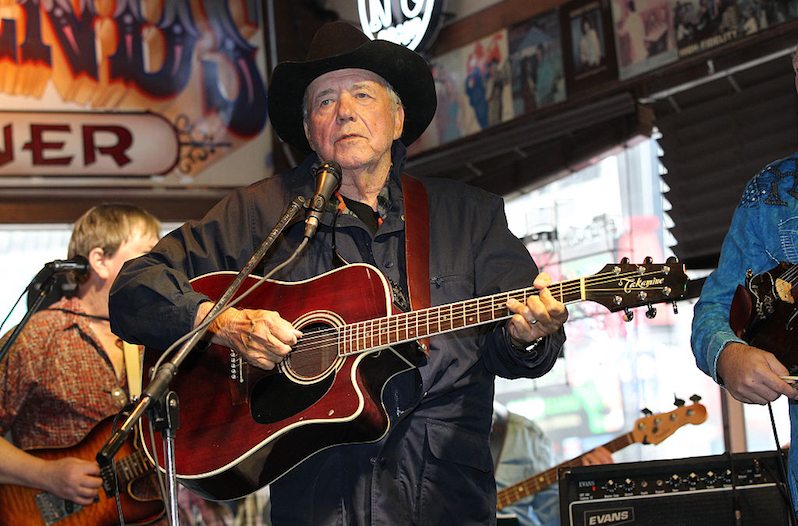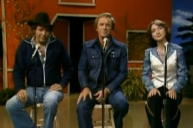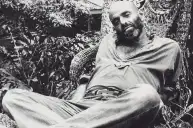Like famous peers Roger Miller, Waylon Jennings and Tom T. Hall, Ohio-born Robert Joseph "Bobby" Bare Sr. always wore many hats as a country music singer and songwriter. Bare's songs can make you laugh, cry or thank your lucky stars, depending on what mood he goes for as a performer. While either singing with the likes of Norma Jean and Liz Anderson or riding alone, Bare told some of the richest, most emotionally-captivating stories ever cut to vinyl.
The following list relies mostly on the classics from Bare's time with RCA Records. That's not to dismiss other eras of Bare's career, including his stint with Columbia Records, such family singalongs with Bobby Bare Jr. as "Singin' in the Kitchen," his role in making "Man of Constant Sorrow" part of the great American songbook, his work with Roseanne Cash or his current role as the real thing among Nashville's living legends. Instead, think of this greatest hits roundup as a primer on why Bare remains a Music City treasure 60 years after he first cracked the charts.
10. "All American Boy" (as Bill Parsons)
Before he became a Music City legend, a pressing plant mistake created an identity crisis of sorts for Bobby Bare. While Bare was away with in the military, his friend Bill Parsons lip-synced the song on television. This caused the folks at Fraternity Records to accidentally mis-label the 1958 single as a Parsons song.
9. "Dear John Letter" (with Skeeter Davis)
In addition to writing great songs, Bare often brought new life to country standards. In this instance, he teamed with Skeeter Davis to further the prior work of another great duet tandem, Ferlin Husky and Jean Sheppard.
8. "Four Strong Winds"
Bare's treatment of a folk standard, popularized by Ian and Sylvia, proves his versatility as a song interpreter. In Bare's hands, the song suited the Nashville Sound without scrubbing away all of its folk storytelling charm.
7. "How I Got to Memphis"
One of Bare's most impressive treatments of someone else's song remains this interpretation of peer and pal Tom T. Hall's well-written tale of a restless and spurned lover. It's one of the better cuts off Bare's early 1970's albums.
6. "(Margie's At) The Lincoln Park Inn"
Like other greats of the 1960's, Bare dealt with controversial song topics head-on. In this instance, Bear speaks as a family man tempted by an assumed mistress. He knows what hotel she's at, and both guilt and temptation are eating him alive.
5. "Marie Laveau"
Bare's song about a Louisiana voodoo queen became one of his biggest-selling hits. It's written by children's author Shel Silverstein, the writer behind such Bare standards as "Daddy What If" and "Ballad of Lucy Jordan" and the Lullabies, Legends and Lies album.
4. "Dropkick Me Jesus"
This bizarre send-up of modern Biblical analogies hardly has the Apostle Paul rolling over in his tomb. That's because Bare doesn't mock Jesus so much as he takes aim at preachers who go a bit overboard applying the Gospel to everyday situations. Also, Bear could've easily chose comedy as a lucrative career, based on this song, "Food Blues," "Tequila Sheila," "Stacey Brown Got Two" and other hilarious selections throughout his career.
3. "Detroit City"
Bare helped popularized one of the better Mel Tillis co-writes by making "Detroit City" one of his first huge story-songs. Despite the popularity of Tom Jones' markedly different version, Bare's storytelling skills make his treatment the definitive cut. Jones also helped popularize "Green Green Grass of Home" alongside Bare, so they must've had surprisingly similar tastes.
2. "500 Miles Away From Home"
Bare took advantage of the surging popularity of old folk songs in the 1960's, adding his own touch to this railroad tune and other bluesy tales from the past. It also captures Bare's skill songs that tie emotions to specific places, be it Detroit, Baltimore or Huntsville.
1. "Streets of Baltimore"
Bare's definitive version of this often-covered song remains his crowning achievement, powering his sustained career longevity. It tells of a man willing to put his wife's big city ambitions ahead of his own preferred way of life.




